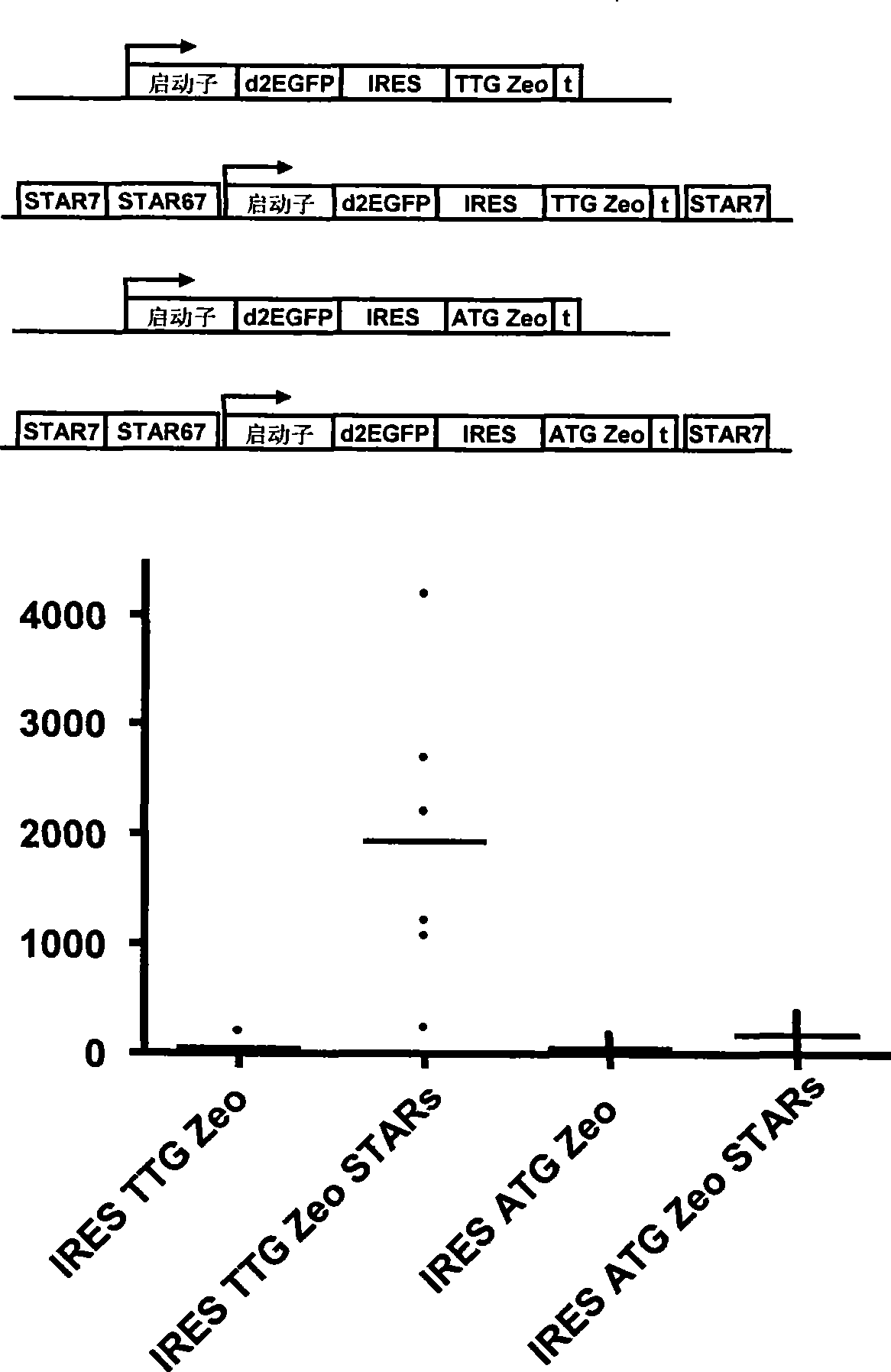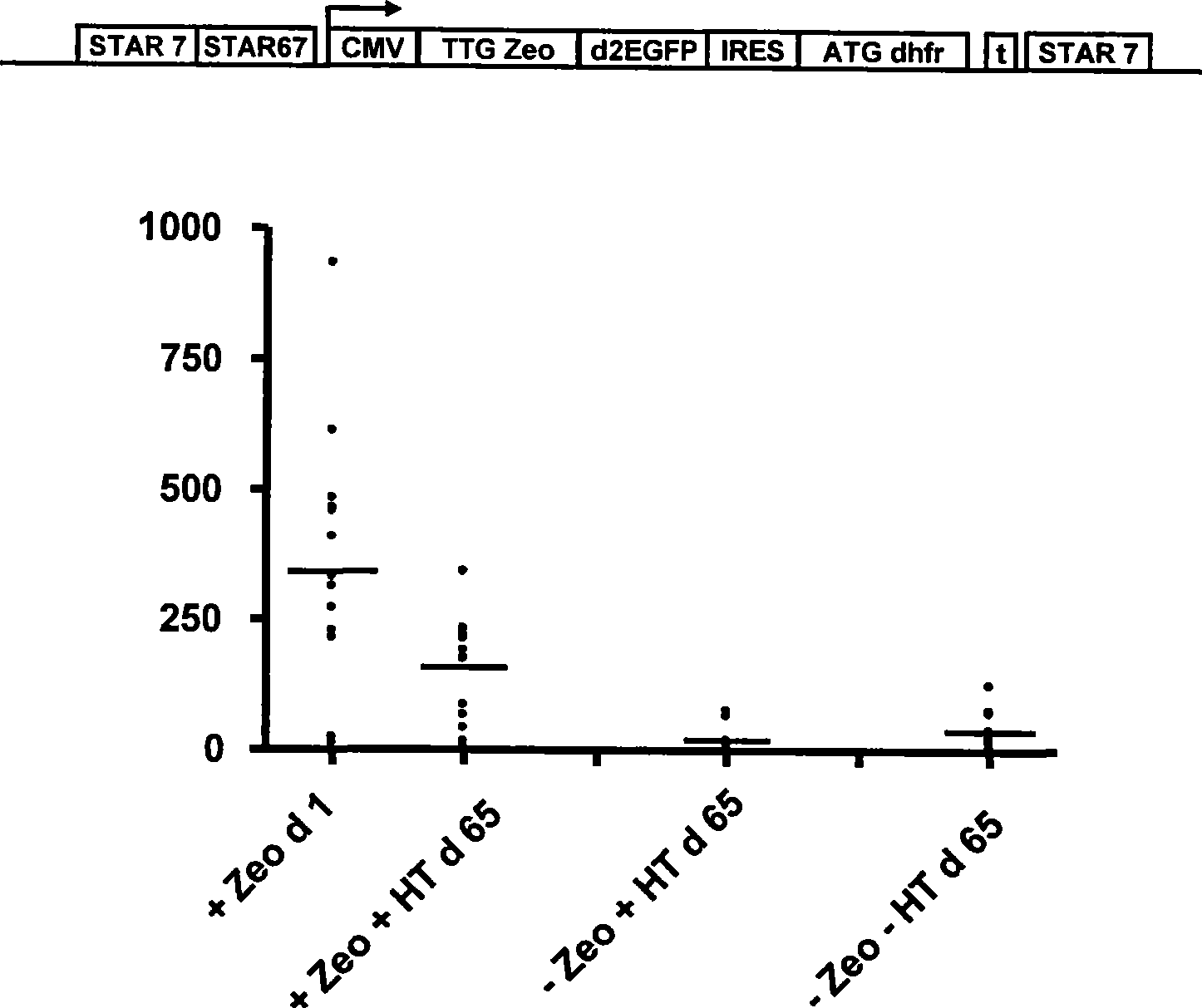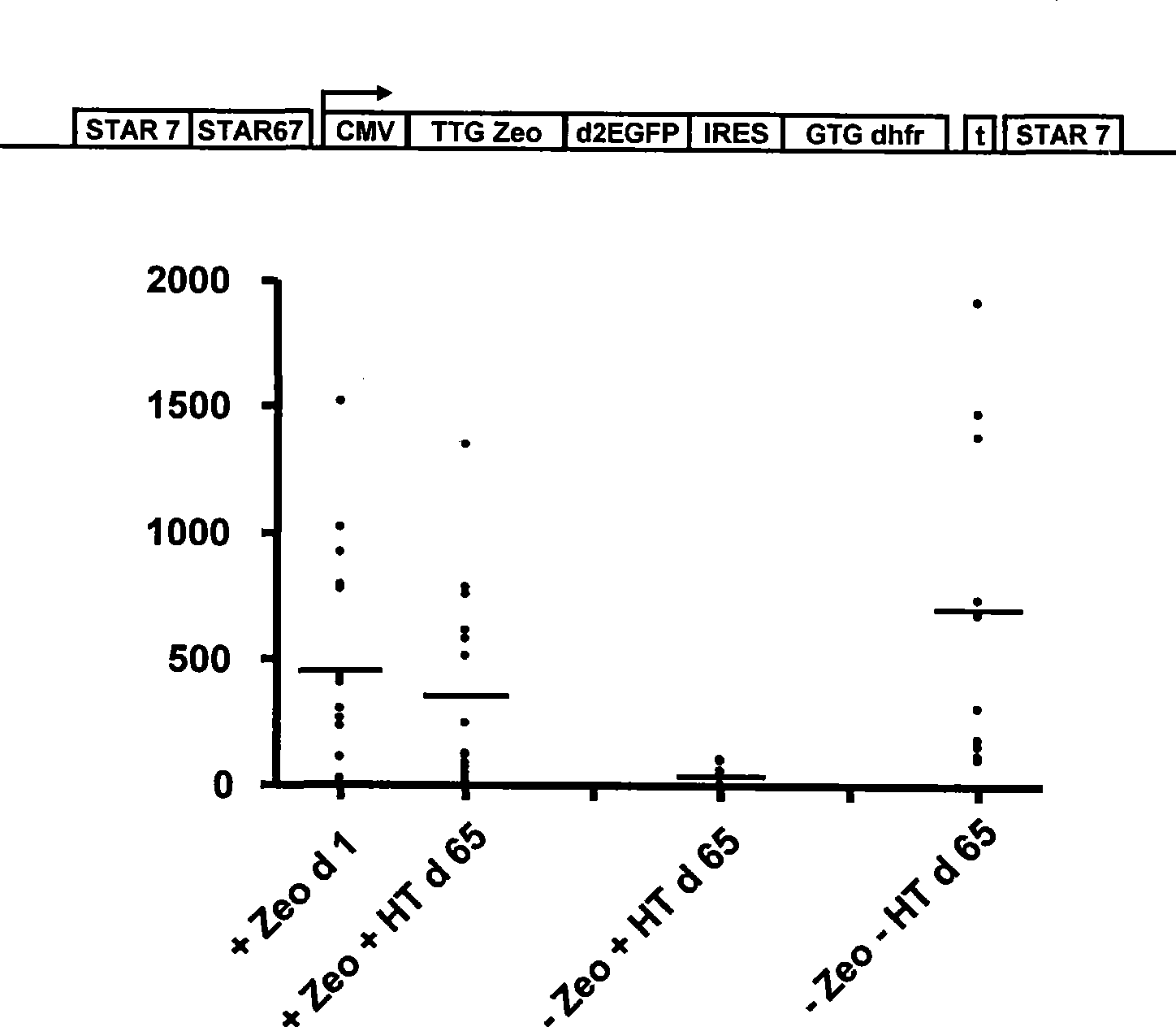Selection of host cells expressing protein at high levels
A technology of host cells and expression cassettes, applied in the field of molecular biology and biology, can solve the problems of unpredictable expression and inactivity of transgenes
- Summary
- Abstract
- Description
- Claims
- Application Information
AI Technical Summary
Problems solved by technology
Method used
Image
Examples
Embodiment 1
[0090]Example 1 describes a selection system with a polycistronic transcription unit of the invention, and it will be apparent that variations described in Examples 8-26 of WO 2006 / 048459 incorporated herein by reference can also be used and tested for the polycistronic transcription unit of the invention. Cistronic transcription unit. The same is true for Examples 20-27 of US 2006 / 0195935.
[0091] Example 1: Stringent selection by placing a modified Zeocin resistance gene behind an IRES sequence Examples 8-26 of WO 2006 / 048459 (incorporated herein by reference in its entirety) have shown a selection system in which multiple The sequence encoding the selectable marker protein on the cistron transcription unit is upstream of the sequence encoding the protein of interest, where the translation initiation sequence of the selectable marker is non-optimal, and where the remaining internal ATG has been removed from the selectable marker coding sequence. This system results in a hi...
Embodiment 2
[0098] Example 2: Stability of expression after placing the modified dhfr gene in the IRES sequence
[0099] The translation initiation codon of the Zeocin selectable marker was modified to a translation initiation codon that is used much less frequently than the usual ATG codon, resulting in a high stringency selection system. In the selection system described in WO2006 / 048459, TTG Zeo is placed upstream of the gene of interest. In another possible selection system, a Zeo selection marker is placed downstream of the IRES sequence (this application, see Example 1). This produces a bicistronic mRNA from which the Zeo gene product is translated from the translation initiation codon in the IRES sequence.
[0100] In this experiment, we combined implementations of these two systems. We placed a TTG selection marker upstream of the reporter gene and coupled a GTG or TTG-modified metabolic marker with an IRES to the reporter gene. Different selectable marker genes can be used, su...
Embodiment 3
[0117] Example 3: The increased expression of the modified dhfr gene following placement of a weakened IRES sequence is not a result of gene amplification.
[0118] In the prior art, the use of the dhfr gene as a selection marker usually relies on the amplification of the dhfr gene. A toxic agent, methotrexate, is used in this system to amplify the dhfr gene, along with the desired transgene, of which up to several thousand copies can be integrated into the genome of CHO cells following such amplification . Although these high copy numbers yielded high expression levels, they were also considered a disadvantage because so many copies could cause increased genome instability and the subsequent removal of methotrexate from the medium would cause many amplifications to occur. Rapid removal of augmented loci.
[0119] In Example 2, no methotrexate was used to inhibit dhfr enzyme activity. Only hypoxanthine and thymidine precursors are removed from the medium, which is sufficien...
PUM
 Login to View More
Login to View More Abstract
Description
Claims
Application Information
 Login to View More
Login to View More - R&D
- Intellectual Property
- Life Sciences
- Materials
- Tech Scout
- Unparalleled Data Quality
- Higher Quality Content
- 60% Fewer Hallucinations
Browse by: Latest US Patents, China's latest patents, Technical Efficacy Thesaurus, Application Domain, Technology Topic, Popular Technical Reports.
© 2025 PatSnap. All rights reserved.Legal|Privacy policy|Modern Slavery Act Transparency Statement|Sitemap|About US| Contact US: help@patsnap.com



